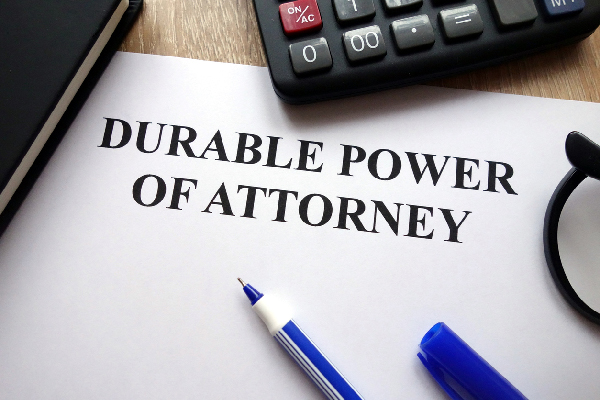
During the estate planning process, a variety of important decisions exist about how you want your affairs handled. However, take a moment to think about what would happen should you become incapacitated and cannot make decisions for yourself. This is where having a durable power of attorney in your estate plan comes into play. A durable power of attorney is an essential part of any estate plan. Indeed, this document allows you to designate someone else to act on your behalf if you become incapacitated.
A durable power of attorney allows you --the "principal"-- to name an "attorney-in-fact" or "agent" to make financial or healthcare decisions for you. Creating this attorney helps you to prepare for a medical emergency. With a this attorney, feel rest assured knowing that you have someone you trust by your side. However, you may be unfamiliar with what a durable power of attorney is or why having one is essential. To help you make an informed decision, here are answers to the most frequently asked questions about durable powers of attorney.
Why Is a Durable Power of Attorney Important?
Upon learning what a durable power of attorney is, you may find yourself wondering whether this is something you really need to include in your estate plan. However, a durable power of attorney is just as essential a component in the estate planning process as a will. While you never want to imagine yourself falling ill, unexpected events can happen at any time. Should you fall ill or become incapacitated, having a durable power of attorney ensures that someone you trust can make decisions for you. Not only will this ensure that your affairs are handled as you would have wished, but it removes stress and confusion.
Without a durable power of attorney, no one can represent you should you become incapacitated unless a court appoints a conservator or guardian. However, that court process takes time and can be costly and stressful for your loved ones, and a judge may ultimately choose someone you do not trust to be in charge of your affairs. Additionally, this process could cost critical time when important decisions regarding your care need to be made. Thusly, this ensures that you have proper care and your wishes are followed.
What Makes a Power of Attorney Durable?
While people often use the terms "Power of Attorney" and "Durable Power of Attorney" interchangeably, these are different documents. General powers of attorney, are generally limited in scope and are automatically revoked if the principal becomes incapacitated. In order to ensure that your agent makes decisions for you, you need a this attorney in effect. The agent continuing to act on the principal's behalf makes a power of attorney "durable".
Who Should I Name as My Agent?
One of the most daunting decisions is naming an agent to handle your medical or financial affairs. Since your agent has a considerable amount of power to make decisions on your behalf, it is important that you choose someone who you can trust to act in your best interest, and who knows how you would want your affairs to be handled.
It is not uncommon for people to designate two co-agents to split the duties assigned to them. This reduces their burden, and the agents can keep each other in check. Oftentimes, people will choose two of their adult children or other close family members to be their agents. Make sure that you pick someone you trust wholeheartedly and that you make your agent aware of both their responsibilities under the durable power of attorney and what your wishes are should you become incapacitated.
What Happens to My Power of Attorney When I Die?
People often wonder what happens to their power of attorney when they die. In fact, there is often a misconception that one's agent can continue to act on a person's behalf when they die. However, this is not the case. In reality, a durable power of attorney is only valid during the lifetime of the principal. Once you die, this document ceases to function. Then, your last will and testament and/or other estate planning documents come into play. Once you die, your agent ceases to have any authority or decision-making powers. Powers of attorney and a will can then be seen as a complementary and equally important estate planning documents, as they help to ensure that someone you trust is able to handle your affairs both in life and in death.
Do I Need More Than One Durable Power of Attorney?
Most likely, yes. You will likely need separate power of attorney documents for medical and financial power of attorney. This can, then, allow you to name separate agents in each document. Of course, consult an estate planning attorney to help you decide what documents you need. Thus, you ensure that your affairs are looked after should you become incapacitated.
Conclusion
Feel free to contact us to learn more about the importance of including a durable power of attorney document in your estate plan as well as for advice on the estate planning process.
For more information please request a copy of our Legal Services Schedule (PDF format).
![]()
